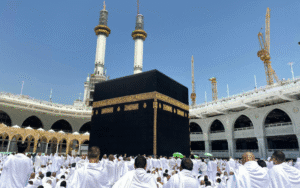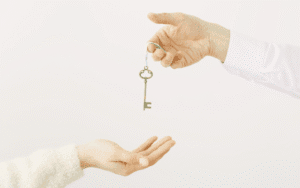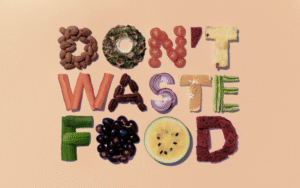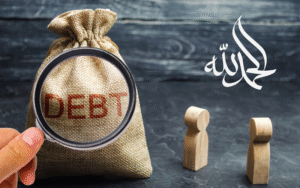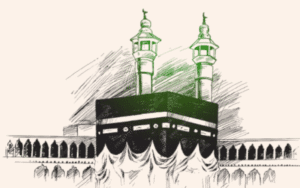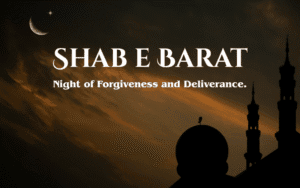What to Do on Milad Un Nabi? Debate, and Practical Guidance
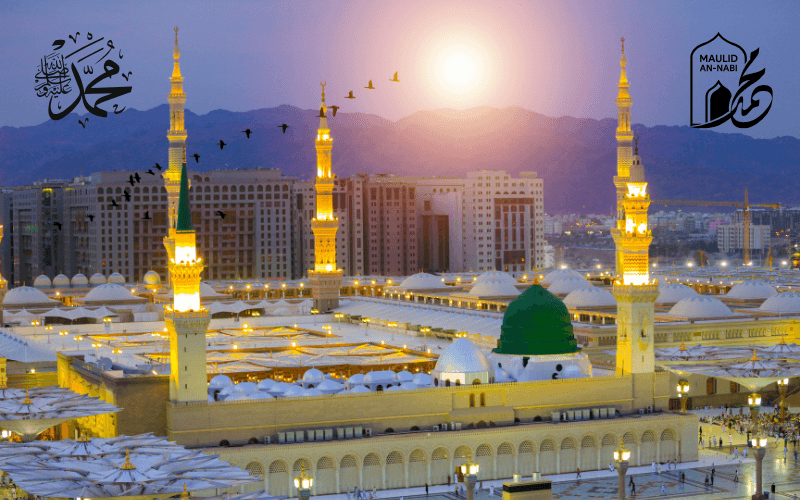
Civilizations often face periods of darkness, sinking into moral decay, injustice, and superstition. During one such time, the Arabian ‘Age of Ignorance’ (Ayyam al-Jahiliyyah), the light of humanity had nearly been extinguished. In His infinite grace, Allah Ta’ala sent His beloved Messenger, the Seal of the Prophets (Khatam an-Nabiyyin), Prophet Muhammad Mustafa (ﷺ), as a profound mercy to all creation. His arrival marked a new dawn of salvation for all humankind. To commemorate this event, some Muslims observe Eid Milad-un-Nabi (ﷺ). This article explores the day’s importance and addresses the key question of what to do on Milad Un Nabi.
The Significance of Eid Milad Un Nabi in the Qur’an and Sunnah
The true impact of the Prophet’s (ﷺ) arrival is timeless and universal. Allah Ta’ala declares in the Holy Qur’an:
وَمَاأَرْسَلْنَاكَإِلَّارَحْمَةًلِلْعَالَمِينَ
“And We have not sent you, [O Muhammad], except as a mercy to the worlds.”
(Surah Al-Anbiya, 21:107)
This powerful verse explains why is Milad Un Nabi celebrated: his coming was the ultimate act of divine mercy. Allah sent him to purify hearts, establish justice, and call people to worship the one true God. His arrival was the greatest favor upon humanity. The Qur’an also tells us to rejoice in Allah’s grace:
قُلْبِفَضْلِاللَّهِوَبِرَحْمَتِهِفَبِذَٰلِكَفَلْيَفْرَحُواهُوَخَيْرٌمِمَّايَيَجْمَعُونَ
“Say, ‘In the bounty of Allah and in His mercy—in that let them rejoice; it is better than what they accumulate.'”
(Surah Yunus, 10:58)
The Prophet (ﷺ) himself acknowledged his birthday’s importance through an act of worship. Abu Qatadah al-Ansari (RA) narrated that when asked about fasting on Mondays, the Prophet (ﷺ) said:
“That is the day on which I was born and the day on which I was commissioned [with prophethood] or on which revelation was first sent down to me.”
(Sahih Muslim, Hadith no. 1162)
This shows he marked his birthday with gratitude to Allah by fasting.
The History of Eid Milad ul Nabi
The formal celebration of Mawlid al-Nabi was not a practice during the time of the Prophet Muhammad (ﷺ), the Rightly Guided Caliphs, or their immediate successors. The history of Eid Milad ul Nabi as an institutional event began after the 4th Islamic century. Historians often credit its widespread popularity to Abu Sa’id Muzaffaruddin Kukuburi (d. 630 AH), the governor of Erbil. He organized grand festivals during Rabi’ al-Awwal, and this practice later spread throughout the Muslim world.
The Core Debate: Is Milad a Bidah?
Scholars actively debate whether celebrating Eid Milad-un-Nabi is permissible in Islam. This discussion raises the crucial question: Is Milad a Bidah (a religious innovation)? There are two primary scholarly viewpoints.
1. The Perspective in Favor of Celebration
Scholars who support Mawlid classify it as a Bid’ah Hasanah (a good innovation). They present several arguments:
- Expressing Gratitude: They cite Surah Yunus, verse 58, arguing that the Prophet (ﷺ) is Allah’s greatest mercy. Therefore, expressing joy for his arrival is a praiseworthy act.
- Manifesting Love: They see Mawlid gatherings as a way to express love for the Prophet (ﷺ). Discussing his life and sending blessings upon him strengthens one’s faith.
- A Tool for Da’wah: Mawlid events can effectively educate people, especially youth, about the Prophet’s (ﷺ) life and teachings.
- The Prophet’s Precedent: They point to the hadith about fasting on Mondays as proof that the Prophet (ﷺ) marked his birthday. They argue his followers can also mark the day with other permissible acts. Proponents insist that any celebration must be free from forbidden acts like idolatry (shirk), music, or improper mixing of genders.
2. The Perspective Against Formal Celebration
Conversely, many scholars view the modern celebration of Milad as an unwarranted religious innovation (bid’ah) that believers should avoid. Their arguments are as follows:
- It Was Not Practiced by the Early Muslims: They argue that if an act of worship was not done by the Prophet (ﷺ) or the first three generations, it cannot be part of the religion. The Prophet (ﷺ) stated: “Whoever introduces something new into this matter of ours [Islam] that is not from it, will have it rejected.” (Sahih al-Bukhari and Sahih Muslim)
- All Religious Innovations Lead Astray: The Prophet (ﷺ) warned sternly against adding new things to the faith. He said, “…Beware of newly invented matters, for every newly invented matter is a bid’ah, and every bid’ah is a misguidance.” (Sunan Abi Dawood)
- True Love is Following, Not Innovating: The Companions loved the Prophet (ﷺ) most, yet they never celebrated his birthday formally. They believe true love demands complete adherence to his Sunnah, which provides the best answer to what to do on Milad Un Nabi.
- Date of Birth Discrepancy: Scholars disagree on the Prophet’s (ﷺ) exact birth date. While the 12th of Rabi’ al-Awwal is famous, many historians suggest the 9th is more accurate. Furthermore, most agree the 12th was the day of his passing, making joyous celebrations on that day unfitting.
Beyond the Debate: What to Do on Milad Un Nabi
Instead of getting lost in debates, a Muslim should focus on the core spirit of the Prophet’s (ﷺ) message. The month of Rabi’ al-Awwal offers a chance to engage in acts that are universally accepted as rewarding. Answering the question of what to do on Milad Un Nabi can be found in these unifying practices:
- Study and Share the Seerah: Read and reflect on the Prophet’s (ﷺ) complete biography. Discuss his noble character with family and friends.
- Increase Salawat (Durood): Make a special effort this month to send abundant blessings and peace upon the Prophet (ﷺ).
- Implement the Sunnah: Strive to revive a Sunnah in your daily life. Embody his truthfulness, humility, forgiveness, and compassion.
- Observe Voluntary Fasts: Follow the Prophet’s (ﷺ) own example by fasting on Mondays.
- Engage in Charity and Service: Embody the Prophet’s (ﷺ) mercy by helping the orphaned, the needy, and the people with low-income.
- Foster Unity: Avoid divisive issues and focus on strengthening the bonds of brotherhood within the Ummah.
The True Essence of Milad
Eid Milad-un-Nabi serves as a powerful reminder of the immeasurable blessing of the Prophet’s (ﷺ) arrival. We must look beyond the formalities of celebration. The true message of this day is to illuminate our lives, families, and societies with the light of his teachings. When our lives are dedicated to loving the Prophet (ﷺ) and following his path, we will have truly understood the significance of his blessed birth.
Frequently Asked Questions
Why is Milad Un Nabi celebrated?
Milad Un Nabi is celebrated to commemorate the birth of Prophet Muhammad (ﷺ). Muslims view his arrival as a fundamental act of divine mercy for all of humanity. The day serves as a time to express gratitude to Allah and to reflect on the Prophet's life, teachings, and compassionate character.
What is the history of celebrating Eid Milad ul Nabi?
Formal, large-scale celebrations of the Prophet's birthday were not practiced by the earliest generations of Muslims. The practice became more institutionalized and popular around the 6th century of the Islamic calendar (12th century CE), with many historians crediting its widespread observance to the ruler of Erbil, Muzaffaruddin Kukuburi.
Is celebrating Milad a Bidah?
There is a significant scholarly debate on this topic. Some scholars consider it a "good innovation" (Bid'ah Hasanah) to foster love for the Prophet. Others view it as an unwarranted innovation because it was not a practice during the time of the Prophet (ﷺ) or his companions. Both perspectives are based on scholarly interpretations of Islamic sources.

